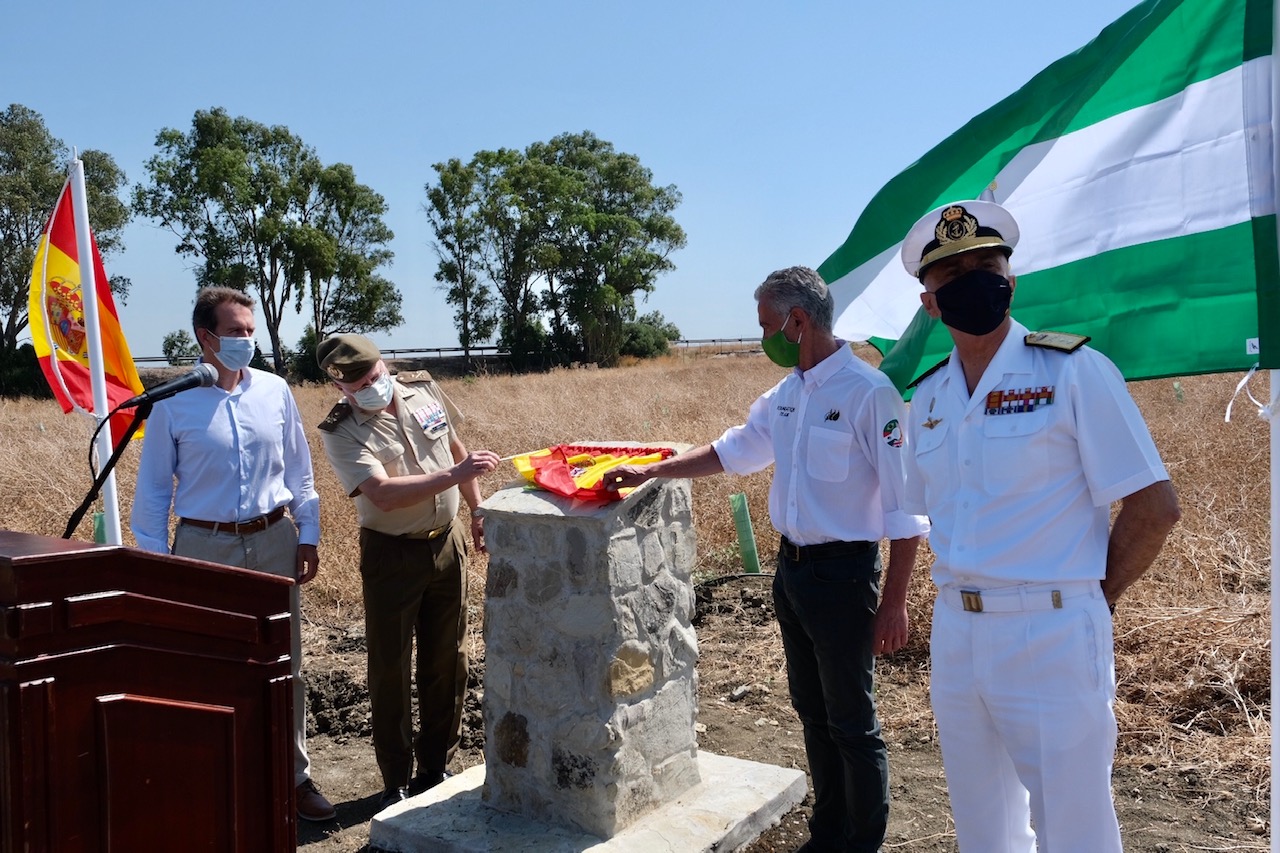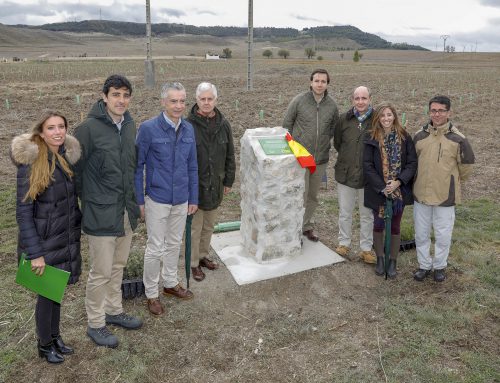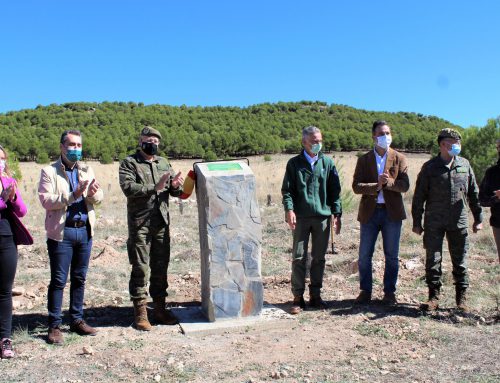- This work has resulted in the planting of more than 16,000 trees on an area of nearly 20 hectares, which will absorb up to 1,800 tonnes of CO2 during their lifetime
- The initiative, which aims to actively contribute to the fight against climate change, is in line with Iberdrola’s strategy and commitments to reduce emissions, whose production in Spain was almost 90% emission-free during the first half of the year
The Chairman of the Fundación Iberdrola España, Fernando García Sánchez, together with the Admiral-in-Chief of the Cadiz Arsenal, Vice-Admiral Ricardo Atanasio Hernández López, the Director General of Infrastructures of the Ministry of Defence, Lieutenant General Luis Cebrián Carbonell, and the Mayor of Barbate, Miguel Molina, visited the Sierra del Retín Training Camp this morning, located in the province of Cadiz, to see the result of the reforestation work carried out by the Fundación Iberdrola España over the last seven months.
This reforestation, the second undertaken by the foundation as part of the Bosque Defensa-Iberdrola plan, has involved planting over an area of nearly 20 hectares of more than 16,000 indigenous trees, 90% of which are wild olive trees and the remaining 10% carob, palm and mastic trees. Throughout their lives they will prevent the emission of more than 1,800 tonnes of CO2 into the atmosphere. In addition, 40 water tanks have been installed (2 tanks per hectare).
To carry out this work the Fundación Iberdrola España has invested around 110,000 euros and has hired 14 people, all from companies in the Barbate area. In addition, over the next two years, these companies will carry out maintenance and irrigation work on the plantation.
In 2018 Iberdrola signed a protocol of intentions with the Ministry of Defence together with the Directorate General of Infrastructures, and one of the areas of action identified was the conservation of the natural environment. To this end, these entities agreed to develop a programme for the reforestation of the Army’s military manoeuvring grounds, which are the property of this ministry. Iberdrola, through its foundation in Spain, is therefore responsible for undertaking this work on the land selected by the administration, with the commitment to carry out one every year.
Iberdrola, commited to decarbonisation
Iberdrola began a profound transformation of its business model more than 20 years ago, when it opted for a sustainable, safe and competitive energy model that would enable it to tackle the fight against global climate change.
Today, the Iberdrola group is a world reference in the fight against climate change – objective 13 of the Sustainable Development Goals (SDA) – and in line with the group’s strategy and commitments to reduce emissions, the company has continued to add renewable capacity during the first half of 2020. Specifically, its renewable capacity worldwide now exceeds 32,695 megawatts (MW), 7.5% more than in the first half of 2019.
In the specific case of Spain, almost 90% of production during the six months was emission-free and 78% globally, without having produced a single megawatt hour with coal between April and June. In countries such as the United Kingdom, Germany and Portugal, Iberdrola already generates 100% of its energy with zero emissions.




